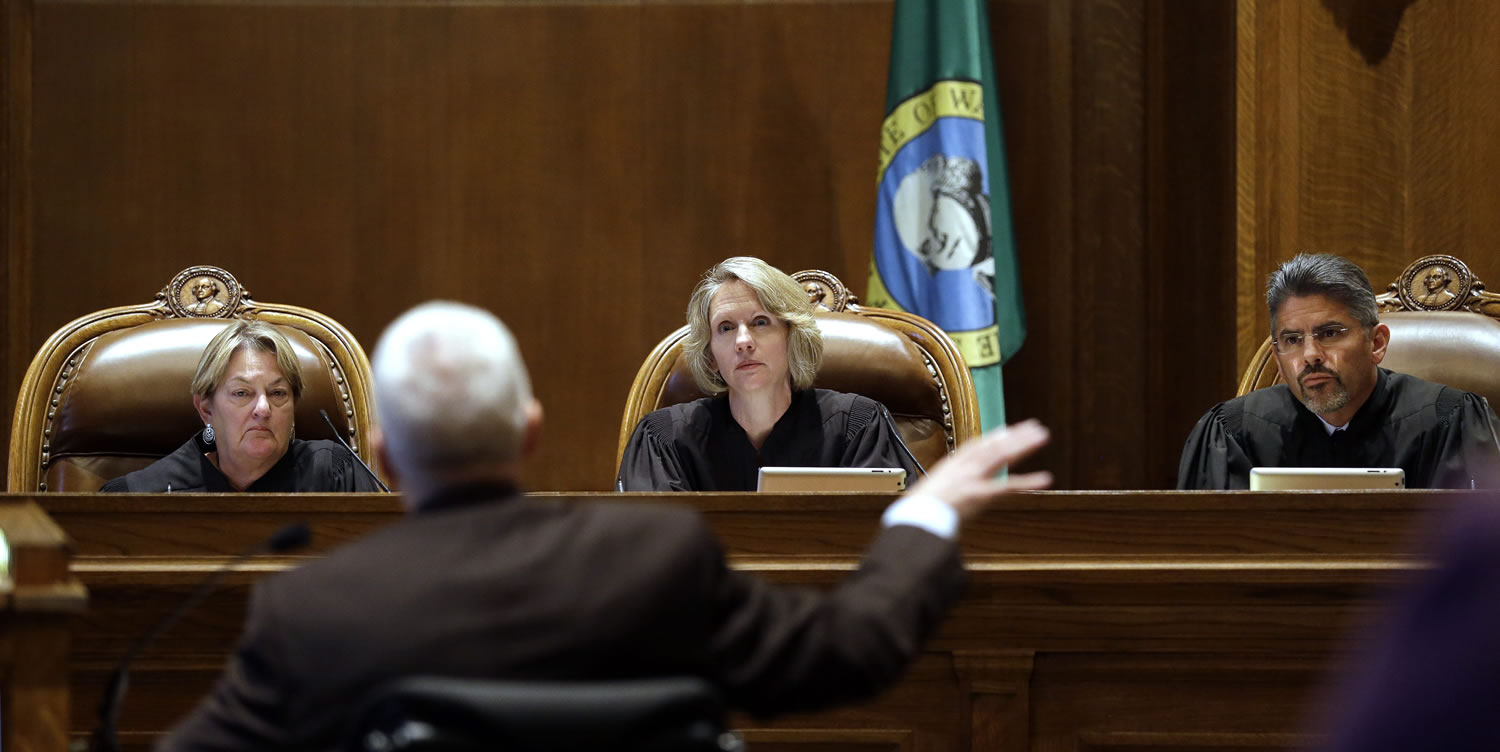OLYMPIA — Based on the questions asked during a Washington Supreme Court hearing on Wednesday, it’s anyone’s guess as to what the court’s next step will be toward forcing the Legislature to fix the way the state pays for education.
The ideas flying around the Temple of Justice even included a suggestion by one Supreme Court justice that they could just decide every state tax exemption is unconstitutional.
Justice Charles Johnson estimated that idea would free up about $30 billion, more than enough to fully pay for basic education for the state’s public schoolchildren.
“What you propose would certainly be an efficient remedy,” acknowledged Deputy Solicitor General Alan D. Copsey, speaking for the state. “I don’t think it would be a constitutional remedy.”
Wednesday’s hearing followed a Supreme Court order asking lawyers representing the Washington Legislature to explain why lawmakers had not set out a plan for fully paying for basic education.
The 2012 McCleary decision said lawmakers are not meeting their constitutional responsibility to fully pay for basic education and they are relying too much on local tax-levy dollars to balance the education budget.
The court commended the Legislature for passing some reforms in the K-12 system and for starting to pay for them. The McCleary decision orders the Legislature to finish paying for the reforms, which may add more than $4 billion to the state’s biennial budget, according to some government estimates.
The Legislature was given until the 2017-18 school year to fix the problem.
In June, the court ordered the state to show why the justices should not hold the state in contempt or impose other sanctions.
Copsey said the court already has the Legislature’s full attention. Neither a finding of contempt nor sanctions would be necessary to get lawmakers to finish their work on education.
He was asked several times why the court should trust the Legislature after lawmakers have ignored several previous orders to make measurable progress on education finance reform and to come up with a plan to finish their work.
Justice Debra Stephens asked what is going to be different in the 2015 legislative session.
“The passage of time matters in this case,” Copsey said, after acknowledging, “I certainly can’t predict the future.”
Other than a preamble about the meaning of justice, the court didn’t give Thomas Ahearne any time to review the arguments he made in his court briefings.
The justices seemed to be trying out potential solutions with the attorney who represents a coalition of parents, students, teachers and community groups, but Ahearne said after the hearing he learned long ago not to try to discern the results of a legal proceeding by the questions asked during a hearing.
He urged the justices to hold the Legislature in contempt and to pick whatever sanctions they believe will be enough to coerce lawmakers into complying with their orders. If the court doesn’t act now, he warned, they will be sitting in the same courtroom next summer having the same discussion about contempt, and by then it might be too late to make sure the McCleary decision is fulfilled by the 2017-18 school year.
“Kicking the can down the road is just one more delay,” Ahearne said.
Among the reforms awaiting payment: all-day kindergarten in every school; more instructional hours for high school students to help them earn 24 credits to graduate; pupil transportation fully supported by state dollars; a new formula for school staffing levels; smaller classes in the lower grades; and more state support for school equipment and supplies.



